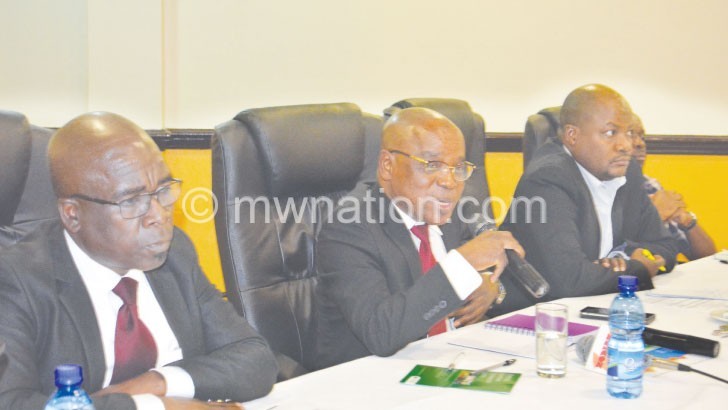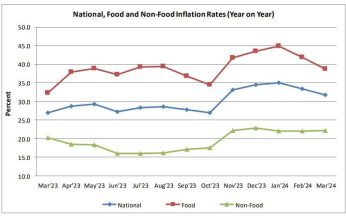Cama pens Mera on persistent blackouts
Consumers Association of Malawi (Cama) has written the Malawi Energy Regulatory Authority (Mera) to remove the 25 percent electricity tariff increase that was effected as a result of the installation of the diesel-powered gensets and inform consumers why they are being subjected to more load shading and frequent blackouts despite the tariff increases.
The letter follows the increased load-shedding schedule from the initial 6 hours to the present 10 hours, which Electricity Supply Corporation of Malawi (Escom) has effected recently.

In the letter dated November 21 2018, Cama, argues that it is economically painful and insulting that after consumers had accepted the higher two tariffs, Escom has now extended the load-shedding programmes and frequent blackouts have become order of the day.
Reads the letter in part: “As consumers, we find the process of increasing the price of a commodity like electricity which doesn’t exist as an insult without even bothering to explain to consumers about continued poor quality of service.
“While it is understood that both Mera and Escom have taken consumers’ patience as …. passiveness, we don’t think this can be tolerated forever and we are also asking Mera together with the Parliamentary Committee on Energy to investigate whether these generators are really working and effect a formula on how consumers can be compensated due to continued load shading and blackouts,” reads the letter in part.
Cama also argues that it is important for service providers like Escom to ensure that they live up to their mandate stressing that it is unfair and inconsiderate that immediately after such a higher tariff increase consumers must be subjected to the current poor electricity supply.
“If Consumers are getting a raw or bad deal after such a high tariff then consumers should be compensated as they have to use other sources of energy that are equally expensive.
“Mera as a regulator should be transparent in the way it treats Escom and that Escom must be punished for it’s failure to meet its key performance indicators that they monitor. Why is Mera behaving as a pararell department of Escom?” implores the letter.
Escom chief executive officer Allexon Chirwa said during a press briefing on the status of the country’s electricity supply and generation, the country is facing acute power supply challenges due to the reduction of water levels in Lake Malawi, a situation that has affected the country’s main electricity generation.
He said the country’s electricity generation capacity has reduced to around 216 megawatts (MW) which is anchored by diesel-powered generators installed in the country’s three cities.
According to Chiwaya, the country is producing 177 MW through its hydro power source-Electricity Generation Company (Egenco) and 38.4 MW from the diesel powered generators which is considerably below the country’s electricity demand of 351 mw.
Mera senior public relations officer Fitina Khonje was yet to respond to questions to confirm receipt of the letter.





